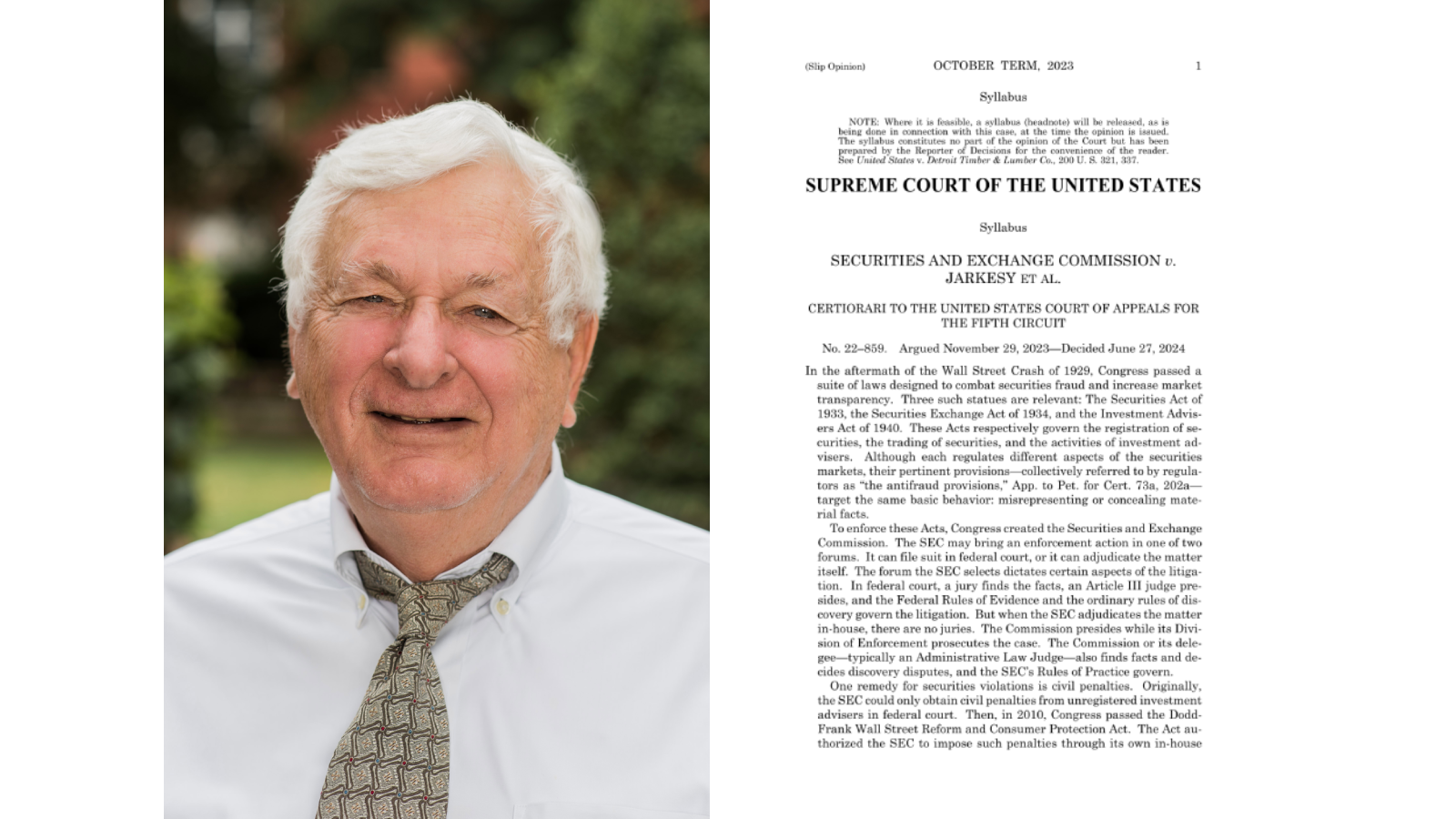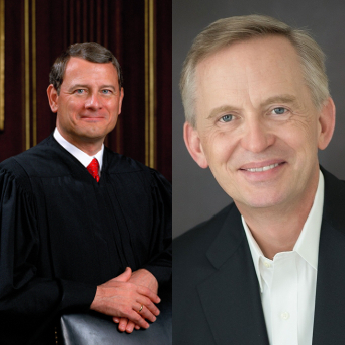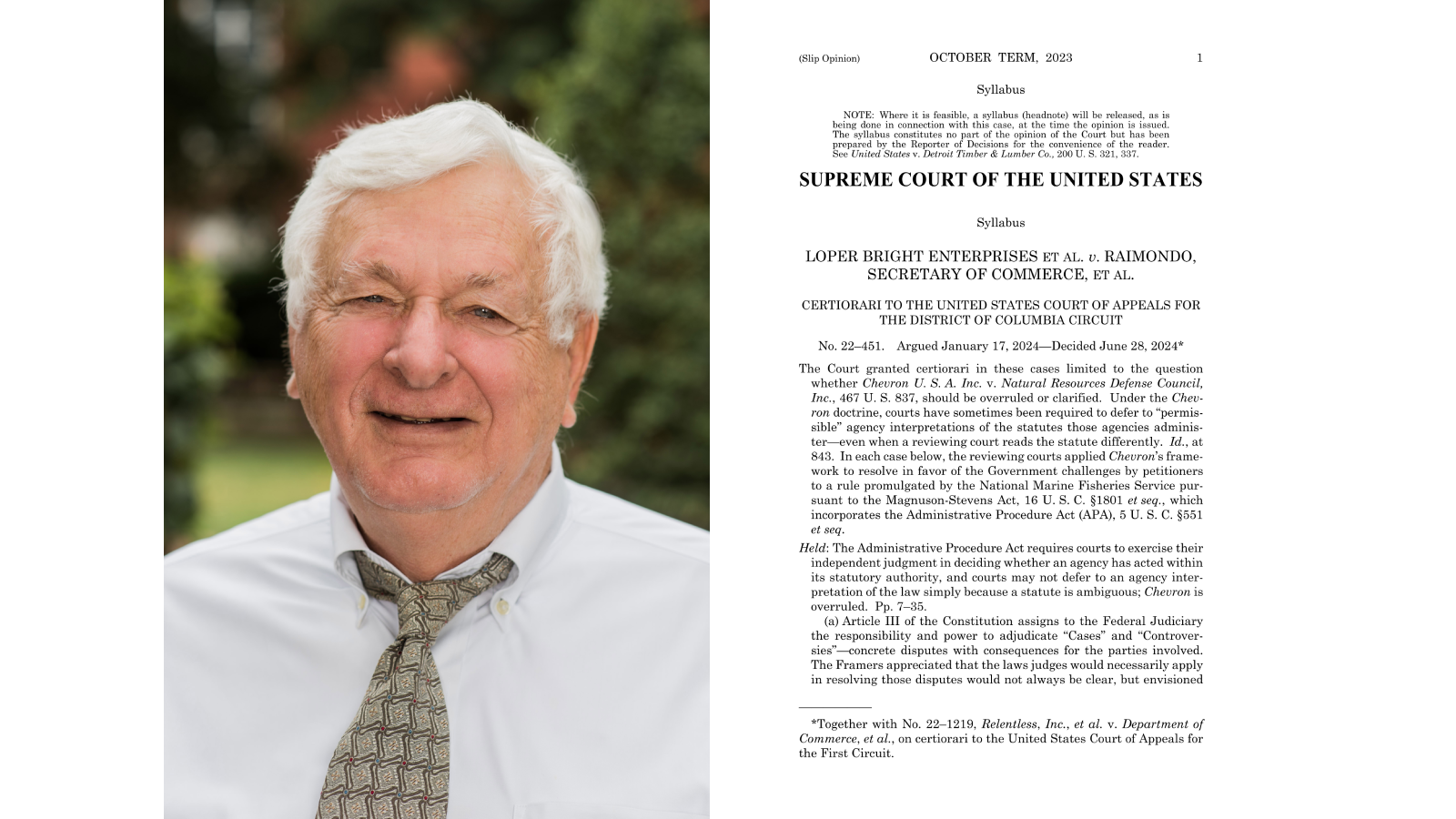Elhady Reversed: The Implications of Judicial Deference for Government Watchlist Plaintiffs
Priyanka Mara 92 Geo. Wash. L. Rev. Arguendo 45 Since their inception over twenty years ago, contemporary government terrorist watchlists have faced routine criticism. These watchlists are infamously secretive, with both the identities of the listees and the procedure for placement on the list largely undisclosed, despite government and public accountability investigations revealing errors, inconsistencies,... Read More
SEC v. Jarkesy: Agencies Cannot Adjudicate Most Civil Penalty Disputes
July 10, 2024 SEC v. Jarkesy, 603 U.S. ___, No. 22-859 (June 27, 2024) Response by Professor Richard Pierce Geo. Wash. L. Rev. On the Docket (Oct. Term 2023) Slip Opinion | SCOTUSblog SEC v. Jarkesy: Agencies Cannot Adjudicate Most Civil Penalty Disputes The Securities and Exchange Commission (SEC) has long had the power to... Read More
Legislation #FortheKids: Passing a Federal Age-Appropriate Design Code Act to Protect Adolescent Mental Health
Nicolette DeLorenzo 92 Geo. Wash. L. Rev. Arguendo 18 Social media platforms profit on their addictive designs that harm the mental health of adolescent users. Up to forty percent of platforms’ users, and therefore a large percentage of their profits, are minors. Some of the elements used to increase profit include targeted advertising and engagement-driven... Read More
Fischer v. United States: A Supposedly Textualist Court Ignores the Text
On January 6, 2021, Trump supporters attacked the U.S. Capitol to disrupt the certification of Joe Biden's election victory. In Fischer v. United States, the Supreme Court controversially ruled that these actions did not violate the law against obstructing official proceedings. Professor Eliason argues this decision contradicts both the statute's plain language and common sense.
Loper Bright Enterprises v. Raimondo: Chevron is Dead; Long Live Skidmore
Professor Pierce discusses the Supreme Court's landmark decision in Loper Bright Enterprises v. Raimondo, which overturns the Chevron deference doctrine. The ruling shifts the emphasis to independent judicial interpretation of statutes, moving away from automatic deference to agency interpretations. This change aligns with the principles of Skidmore v. Swift & Co., promoting a more nuanced approach to judicial review while still respecting agency expertise.
Helpful Industry or Officious Intermeddlers: Assessing U.S. Champerty Law Through the Lens of Third-Party Funding in International Dispute Resolution
Josef Wolfgang Paulson 92 Geo. Wash. L. Rev. 725 International commercial arbitration is experiencing a period of rapid growth as a means of dispute resolution. As arbitration can be an expensive process, there has also been a growth in the practice of third-party funding for arbitration. The old British common law doctrines of maintenance and champerty,... Read More
Antitrust Enforcement in the Pharmaceutical Industry: Analyzing Patents Under the Rule of Reason
Charles W. Schmidt 92 Geo. Wash. L. Rev. 691 American consumers and lawmakers across the political spectrum agree that prescription drug prices are far too high. This Note identifies an antitrust cause of action that could drastically reduce the prices of the most expensive prescription drugs. Under section 1 of the Sherman Antitrust Act (“Section 1”),... Read More
Free Speech Originalism: Unconstraining in Theory and Opportunistic in Practice
Caroline Mala Corbin 92 Geo. Wash. L. Rev. 633 Courts should not apply originalism in freedom of expression cases. Originalists claim that originalism prevents judges from imposing their own views. It does not—not in theory and not in practice. Instead, as the treatment of hate speech bans suggests, it is not principles but outcomes that... Read More
Effectively Irrebuttable Presumptions: Empty Rituals and Due Process in Immigration Proceedings
Tiffany J. Lieu 92 Geo. Wash. L. Rev. 580 Rebuttable presumptions—ones that offer the opportunity to overcome a presumed fact—are a common fixture in U.S. civil law. Some rebuttable presumptions, however, are not in fact rebuttable at all and are instead rebuttable in name only. Nonetheless, courts often take at face value a presumption’s claim... Read More
Representations & Warranties, Fraud, and Risk Shifting: An Analytical Framework
Steven L. Schwarcz 92 Geo. Wash. L. Rev. 549 Do violations of contractual representations and warranties (“R&Ws”) merely shift risk by giving rise to contract-breach damages, or can they also give rise to fraud claims? This question is at the heart of numerous lawsuits, including billions of dollars of securitization-related litigation. Many agreements governing the... Read More



